Top 10 NFL Teams with the Worst Defenses Going Into the 2020-21 Season
They say Defense wins championships and while that’s mostly true there’s teams who struggle with that. Whether they just suck or there’s something that holds them back these teams have a subpar defensive unit. Some aren’t terrible and have potential in the future but this year I’m not seeing it from them The Jacksonville Jaguars are an American professional football franchise based in Jacksonville, Florida.
The Jacksonville Jaguars are an American professional football franchise based in Jacksonville, Florida. Oh how the mighty have fallen. Remember 2017 when the Jacksonville Jaguars nearly rode their Sacksonville defense to the Super Bowl? Good times. Now all has changed. The only survivors from that 2017 defense are Myles Jack, Avery Jones and Yannick Ngakoue. Even though Yannick may be gone sooner rather than later. Calais Campbell and AJ Bouye were shipped off. They will have to rely on CJ Henderson and K'Lavon Chaisson I'm not confident they will immediately be able to fill in the gaps left behind
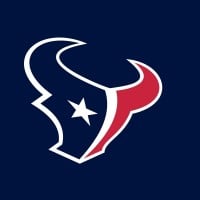 The Houston Texans are a professional American football team based in Houston, Texas. The team competes in the National Football League as a member club of the American Football Conference South division.
The Houston Texans are a professional American football team based in Houston, Texas. The team competes in the National Football League as a member club of the American Football Conference South division. Houston's big moves were re-signing cornerback Bradley Roby and adding safety Michael Thomas as a replacement for Tashaun Gipson, which is not enough for a secondary that ranked 26th in passing DVOA last year. lost run-stuffing tackle D.J. Reader. While Houston drafted defensive tackle Ross Blacklock out of TCU and signed veteran Timmy Jernigan, they will have to step up big time to match Reader's steady pressure. Reader had 13 quarterback hits in 2019 and was ranked Pro Football Focus' third-best tackle against the run. There's also questions surrounding JJ Watt's health. And remember the last we saw this team they blew a 24-0 lead. That tells you everything you need to know
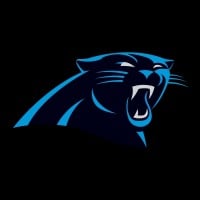 The Carolina Panthers are a professional American football team based in Charlotte, North Carolina, that competes in the National Football League.
The Carolina Panthers are a professional American football team based in Charlotte, North Carolina, that competes in the National Football League. The Panthers defense last year was abysmal. Giving up 5.2 yards per carry wasn't just the worst in the NFL last season; it was the worst any NFL defense had posted since the Bears allowed 5.3 yards per carry in 2013. Carolina also allowed 31 rushing touchdowns; the worst total by any defense since the 0-16 Lions did it in 2008. Not a great group of metrics in an era when running backs supposedly don't matter. Matt Rhule obviously brought in a lot of defensive help in the draft. To be clear, this is a unit with upside, especially given the prowess of guys like Brown and Gross-Matos. But there is also plenty of inexperience, especially when compared to other defenses around the league.
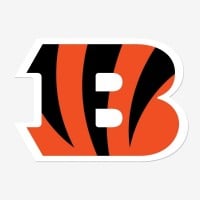 The Cincinnati Bengals are a professional American football franchise based in Cincinnati, Ohio. The Bengals currently compete in the National Football League as a member club of the league's American Football Conference North division.
The Cincinnati Bengals are a professional American football franchise based in Cincinnati, Ohio. The Bengals currently compete in the National Football League as a member club of the league's American Football Conference North division. The Bengals went all-out in the offseason to try and improve a defense that started and finished the season out of sorts. They signed former Texans defensive tackle D.J. Reader to pair with Geno Atkins, and signed Trae Waynes and Mackensie Alexander. In the draft, they tried to solve their obvious linebacker problems with the selections of Wyoming's Logan Wilson and Appalachian State's Akeem Davis-Gaither. But I'll say it isn't enough to improve upon a group that posted just 31 sacks last season (though Reader is an underrated interior pass-rusher)
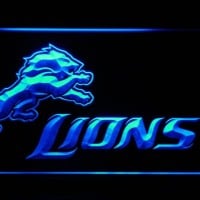 The Detroit Lions are a professional American football team based in Detroit, Michigan. The Lions compete in the National Football League as a member club of the league's National Football Conference North division... read more
The Detroit Lions are a professional American football team based in Detroit, Michigan. The Lions compete in the National Football League as a member club of the league's National Football Conference North division... read more The Lions May be in trouble on Defense. It starts by Losing safety Quandre Diggs halfway through the season to an ill-advised trade didn't help, and losing cornerback Darius Slay to an ill-advised off-season trade won't make things much better. Desmond Trufant, the former Falcons cornerback who the Lions signed to replace Slay, allowed nine catches on 15 targets for two touchdowns and two interceptions in man coverage last season. First-round cornerback Jeff Okudah, is the best cornerback in this class, he will have to get up to speed very quickly. Julian Okwara might be able to help set the edge, but the Lions ranked 29th in
passing DVOA last year, and the relative shortage of pass-rushing threats will test Detroit's secondary once again. This isn't a unit that sparks confidence if you're a Lions fan
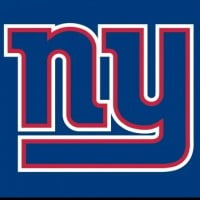 The New York Giants are a professional American football team located in the New York metropolitan area.
The New York Giants are a professional American football team located in the New York metropolitan area. The Giants Defense is hot garbage. They got Blake Martinez and James Bradberry While the Giants bolstered the secondary and added talent at the linebacker position, they lack quality depth and pass-rushers on the defensive line, which is not the best recipe for success in their base 3-4 scheme. Losing Markus Golden hurts
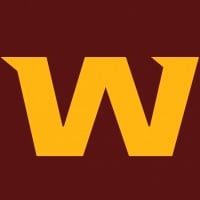 The Washington Commanders are a professional American football team based in the Washington, D.C. metropolitan area.
The Washington Commanders are a professional American football team based in the Washington, D.C. metropolitan area.In 2020, Washington after 87 years got rid of the Redskins trademark due to it being labeled racist to native culture. It was named the Washington Football Team until February... read more
The highlight for Washington was the addition of second-overall pick Chase Young, the (whatever they're called) are in the interesting position of having five first-round picks along their defensive line — Young, Jonathan Allen, Ryan Kerrigan, Da'Ron Payne, and Montez Sweat, who was Washington's first-round pick in 2019. That's all well and good, and the (whatever they're called) did have 47 sacks and 83 quarterback hurries last season, but they also allowed 35 passing touchdowns third worst in the league to just 13 interceptions. In the offseason, Washington traded Quinton Dunbar, the one cornerback who performed at an above-average level in 2019, to Seattle. Which puts them in no better position to stop its opponents from throwing the ball all over the place, even with a front five that rivals any other in potential.
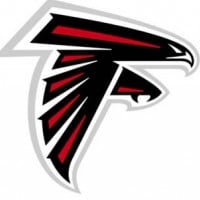 The Atlanta Falcons are a professional American football team based in Atlanta, Georgia. The Falcons compete in the National Football League as a member club of the league's National Football Conference South division.
The Atlanta Falcons are a professional American football team based in Atlanta, Georgia. The Falcons compete in the National Football League as a member club of the league's National Football Conference South division. The Falcons desperately needed an upgrade in the secondary, particularly after cutting ties with Desmond Trufant. They got their man in Clemson cornerback A.J. Terrell with the No. 16 pick. Though Terrell wasn't one of the more lauded corners like Jeff Okudah or C.J. Henderson, he was still tremendous in press coverage. Outside of Terrell, however, the Falcons didn't do a whole lot to address the secondary. They drafted safety Jaylinn Hawkins in the fourth round but failed to add depth at the corner spot. Atlanta will need the front 7 to carry that defense if they want to make it back to the playoffs
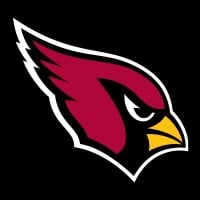 The Arizona Cardinals are a professional American football franchise based in the Phoenix metropolitan area.
The Arizona Cardinals are a professional American football franchise based in the Phoenix metropolitan area. The Cardinals drastically improved their defense with their first-round selection of do-it-all hybrid defender Isaiah Simmons out of Clemson. Last season, Simmons tallied 104 combined tackles, eight sacks and three interceptions to go along with eight passes defended. He can play up in the box or drop into coverage, and the Cardinals might look to use him in the same capacity as New York Jets star safety Jamal Adams. Despite that and a few other additions the Cardinals actually ranked
23rd in DVOA last year. The moves made in free agency and the draft, should help this unit improve.
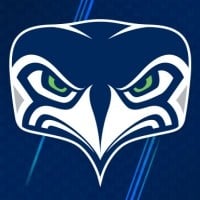 The Seattle Seahawks are a professional American football franchise based in Seattle, Washington. The Seahawks compete in the National Football League as a member club of the league's National Football Conference West division.
The Seattle Seahawks are a professional American football franchise based in Seattle, Washington. The Seahawks compete in the National Football League as a member club of the league's National Football Conference West division. The Seahawks' Legion of Boom defenses of the early and mid-2010s are now a distant memory. There's a noticeable lack of pass rush with the re-signing of Jadeveon Clowney looking unlikely, and while the mid-season trade for safety Quandre Diggs probably saved Seattle's season, there aren't the alphas they used to be. Linebacker Bobby Wagner is still one of the best in the business, but he was drafted in 2012, They did add some talent selecting Texas Tech linebacker Jordyn Brooks in the first round and Tennessee edge-rusher Darrell Taylor in the second. Both figure to play big roles with Brooks likely filling Mychal Kendricks' shoes and Taylor joining a number of pass-rushing options. Not to mention Quinton Dunbar. This defense could go either way honestly
 The Los Angeles Rams are a professional American football team based in the Los Angeles metropolitan area.
The Los Angeles Rams are a professional American football team based in the Los Angeles metropolitan area.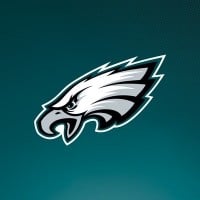 The Philadelphia Eagles are a professional football franchise based in Philadelphia, Pennsylvania. The Eagles compete in the National Football League as a member club of the league's National Football Conference East division.
The Philadelphia Eagles are a professional football franchise based in Philadelphia, Pennsylvania. The Eagles compete in the National Football League as a member club of the league's National Football Conference East division.